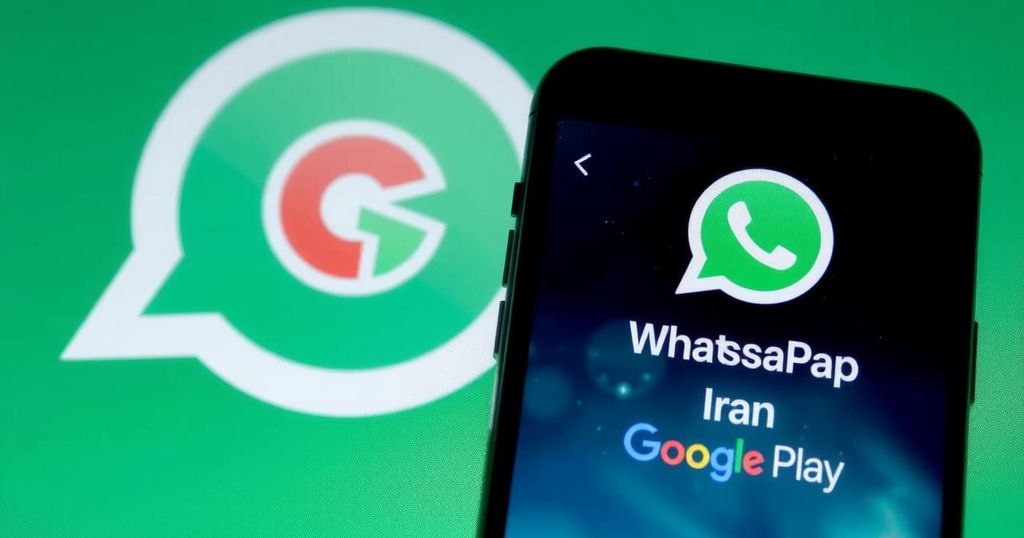Iran Lifts Ban on WhatsApp and Google Play Amid Ongoing Social Reforms

Iran has lifted the ban on WhatsApp and Google Play, signaling a possible easing of internet restrictions, while also pausing a stricter hijab law that could severely penalize non-compliance. These actions reflect ongoing political negotiations regarding women’s rights and the freedom of digital access.
The Iranian government has officially lifted its ban on the messaging platform WhatsApp and the Google Play store, marking a significant step towards easing internet restrictions in the country. Iranian state media reported that this decision follows a meeting led by President Masoud Pezeshkian, where a majority voted to grant access to these popular services. The Minister of Information and Communications Technology, Sattar Hashemi, remarked, “Today the first step in removing internet limitations… has been taken.” Iranians have long navigated around stringent internet controls using VPNs to access blocked social media platforms, such as Facebook and YouTube, particularly during anti-government protests.
This recent development coincides with Iran’s decision to pause the implementation of a more restrictive hijab law that had been approved by the parliament. As reported by the Associated Press, the legislative body has decided not to forward this law to the government for now, which could have imposed severe penalties on women who do not comply with hijab regulations, as well as on businesses that serve them. Vice President Shahram Dabiri stated, “It was decided that this law will not be referred to the government by the parliament for now,” reflecting ongoing tensions regarding women’s rights within the Islamic Republic’s political landscape. Previously, President Masoud Pezeshkian had opposed the stricter law, possibly in a bid to facilitate negotiations with Western powers over sanctions related to Iran’s nuclear program.
The context of this article revolves around the ongoing struggle for internet freedom and women’s rights in Iran. The Iranian government has implemented some of the world’s most stringent internet censorship measures, restricting access to various global platforms. The recent lifting of the ban on WhatsApp and Google Play indicates a potential shift towards a more open digital environment. Moreover, the hijab law introduces another layer of complexity, reflecting the broader cultural and political challenges that the nation faces, particularly regarding women’s autonomy. In recent months, increased online activism has prompted dissent against such social restrictions, demonstrating the public’s desire for reform.
In conclusion, Iran’s recent move to lift the bans on WhatsApp and Google Play signifies a noteworthy step towards reducing internet restrictions, highlighting the government’s acknowledgment of the public’s reliance on these platforms for communication and information. Simultaneously, the decision to pause the new hijab law reflects ongoing negotiations within the political sphere concerning women’s rights and social norms. As the situation continues to evolve, these developments may pave the way for further reforms and a reevaluation of the government’s approach to digital and civil liberties in Iran.
Original Source: www.hindustantimes.com







